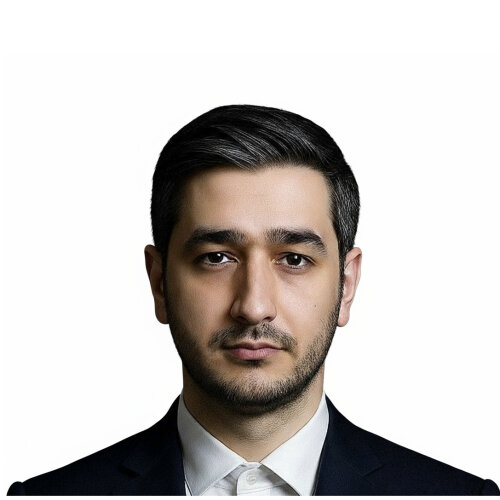Best International Trade Law Lawyers in Kermanshah
Share your needs with us, get contacted by law firms.
Free. Takes 2 min.
List of the best lawyers in Kermanshah, Iran
1. About International Trade Law in Kermanshah, Iran
International Trade Law governs cross border transactions of goods and services. In Iran, this field blends national statutes with regulatory rules for customs, licensing, and sanctions compliance. Kermanshah, as a western border province, sees businesses engaging in imports and exports with neighbors and other markets. Local companies often interact with provincial customs offices and the Industry, Mines and Trade Organization to obtain licenses and ensure compliance.
For practical purposes, a licensed vaakel (attorney) or lawyer in Kermanshah who specializes in trade matters can help with contract drafting, licensing questions, and disputes. The province relies on the national framework administered by Iranian customs authorities and trade regulators. Understanding how these rules apply locally can prevent delays and costly mistakes in cross border operations.
For broader context on how international trade law operates with national regimes, see WTO resources on trade policy and Iran's status within multilateral rules.
World Trade Organization (WTO)
2. Why You May Need a Lawyer
Here are concrete, real world scenarios that commonly require professional legal assistance in Kermanshah. Do not rely on generic statements when dealing with cross border trade.
- Tariff classification disputes at the border - A local importer discovers that an item was classified under a higher tariff category by the Customs Administration, increasing duties. A lawyer can review the tariff codes, submit requests for reclassification, and represent you in administrative proceedings.
- Export licenses for goods bound for neighboring markets - Your company exports textiles to Iraq and needs to verify licensing and export controls. A trade lawyer can prepare the necessary filings and ensure compliance with applicable controls.
- Drafting or negotiating cross border distribution agreements - You sign a distribution contract with a foreign partner and want clear governing law, dispute resolution, and termination terms. A lawyer can tailor clauses to Iranian law and international practices.
- Disputes with freight forwarders or logistics providers - If a shipment is delayed or mispriced, you may need to pursue claims for loss or damage. A trade attorney can analyze contracts and coordinate recovery efforts.
- Sanctions and dual use compliance concerns - If your product could be subject to export controls, you need a plan to comply with sanctions regimes and licensing requirements to avoid penalties.
- Intellectual property protection in cross border sales - When marketing products in multiple jurisdictions, you may require guidance on IP rights, registrations, and enforcement strategies.
3. Local Laws Overview
Customs Regulations and Tariffs
The Customs Regulations govern clearance procedures, tariff classifications, valuation, and duties on imports and exports. In Kermanshah, businesses must prepare accurate documentation, comply with prepayment or payment on delivery requirements, and follow procedures set by the provincial customs office. Tariff schedules and rules are updated periodically by national authorities and can affect import costs.
Code of Commerce (Commercial Code)
Iran's Commercial Code provides the legal framework for commercial transactions, agency relationships, and business entities. It is applied by courts to interpret cross border sales contracts and distribution agreements. When disputes arise, the Commercial Code guides breach of contract analysis and remedies. For international disputes, parties may consider arbitration under recognized frameworks while ensuring enforceability under Iranian law.
Foreign Exchange, Payment Regulations, and Related Controls
Trade payments in Iran are influenced by the Central Bank of Iran and related foreign exchange regulations. These rules govern currency conversions, payment terms, and how letters of credit or other financing instruments operate across borders. Companies in Kermanshah should coordinate with financial partners to ensure compliance on timing, currency, and documentation.
Recent regulatory trends emphasize digital documentation and streamlined border procedures in line with international best practices. While the exact domestic amendments vary, the overarching aim is to reduce processing times and improve compliance transparency. Consult a local vaakel to confirm the current regime applicable to your activities.
International bodies emphasize trade facilitation and efficient border procedures as key to improving cross border commerce.
International Trade Centre (ITC)
4. Frequently Asked Questions
What is International Trade Law in simple terms?
It is the body of rules governing cross border sales, licensing, and dispute resolution between countries. It includes contracts, tariffs, export controls, and customs procedures.
How do I start a cross border contract in Iran from Kermanshah?
Identify your parties, define governing law, choose a dispute resolution method, and ensure documents meet Iranian requirements. A vaakel can draft the contract and advise on enforceability.
When should I hire a local trade lawyer in Kermanshah?
Hire them at the outset of negotiations, before signing distribution or licensing agreements, and ahead of customs clearance or licensing applications.
Where can I find reliable legal help for trade matters locally?
Seek a licensed vaakel or attorney with experience in customs, export, and cross border contracts. Check credentials with the local Bar Association and prior client references.
Why is tariff classification important for my import business?
Classification determines duties and eligibility for preferential schemes. Incorrect codes can lead to higher duties and penalties on entry.
Can I get a refund if a customs decision seems incorrect?
Yes, through an administrative appeal or legal challenge. A lawyer can prepare the grounds and represent you in the appeal process.
Should I use arbitration for cross border disputes?
Arbitration often provides neutral forums and enforceable awards, but ensure the agreement selects a recognized framework and that arbitration is enforceable in Iran.
Do I need an import license for basic goods?
Some categories require licenses or permits from national regulators. A local vaakel can verify the licensing requirements for your product.
Is it possible to recover costs from a freight forwarder for a shipment loss?
Yes, if there is proven fault or negligence, documented in the contract and shipment records. A lawyer can help file claims and pursue remedies.
What is the difference between incoterms and Iranian trade rules?
Incoterms define delivery responsibilities, while Iranian trade law governs licensing, tariffs, and enforcement in Iran. Both need to align in a contract.
How long does a typical customs review take in Kermanshah?
Clearance times vary by shipment type and documentation quality. Typical processing ranges from a few days to several weeks depending on the case.
5. Additional Resources
Access official international trade information and guidance through these organizations. They provide general frameworks, arbitration options, and data useful for Iran trade matters.
- World Trade Organization (WTO) - International trade rules, dispute settlement, and policy information. wto.org
- International Chamber of Commerce (ICC) - Guidance on cross border contracts, arbitration clauses, and business standards. iccwbo.org
- International Trade Centre (ITC) - Trade data, market analysis, and SME support for global markets. intracen.org
These organizations offer global perspectives and procedural frameworks that can help with international trade matters even in border provinces like Kermanshah.
WTO, ICC, ITC
6. Next Steps
- Define your trade issue clearly and collect all relevant documents, such as contracts, invoices, licenses, and correspondence.
- Search for a Kermanshah based vaakel with trade law specialization and verify their license to practice in Iran.
- Request initial consultations and prepare a concise brief outlining goals, deadlines, and budget expectations.
- Ask about fee structures, retainer arrangements, and anticipated total costs for the matter at hand.
- Agree on a plan with milestones and a communication schedule for updates on progress and decisions.
- Obtain a written engagement letter detailing scope of services and applicable terms of representation.
- Proceed with the engagement and provide any additional documents requested by your counsel to begin work.
Lawzana helps you find the best lawyers and law firms in Kermanshah through a curated and pre-screened list of qualified legal professionals. Our platform offers rankings and detailed profiles of attorneys and law firms, allowing you to compare based on practice areas, including International Trade Law, experience, and client feedback.
Each profile includes a description of the firm's areas of practice, client reviews, team members and partners, year of establishment, spoken languages, office locations, contact information, social media presence, and any published articles or resources. Most firms on our platform speak English and are experienced in both local and international legal matters.
Get a quote from top-rated law firms in Kermanshah, Iran — quickly, securely, and without unnecessary hassle.
Disclaimer:
The information provided on this page is for general informational purposes only and does not constitute legal advice. While we strive to ensure the accuracy and relevance of the content, legal information may change over time, and interpretations of the law can vary. You should always consult with a qualified legal professional for advice specific to your situation.
We disclaim all liability for actions taken or not taken based on the content of this page. If you believe any information is incorrect or outdated, please contact us, and we will review and update it where appropriate.









